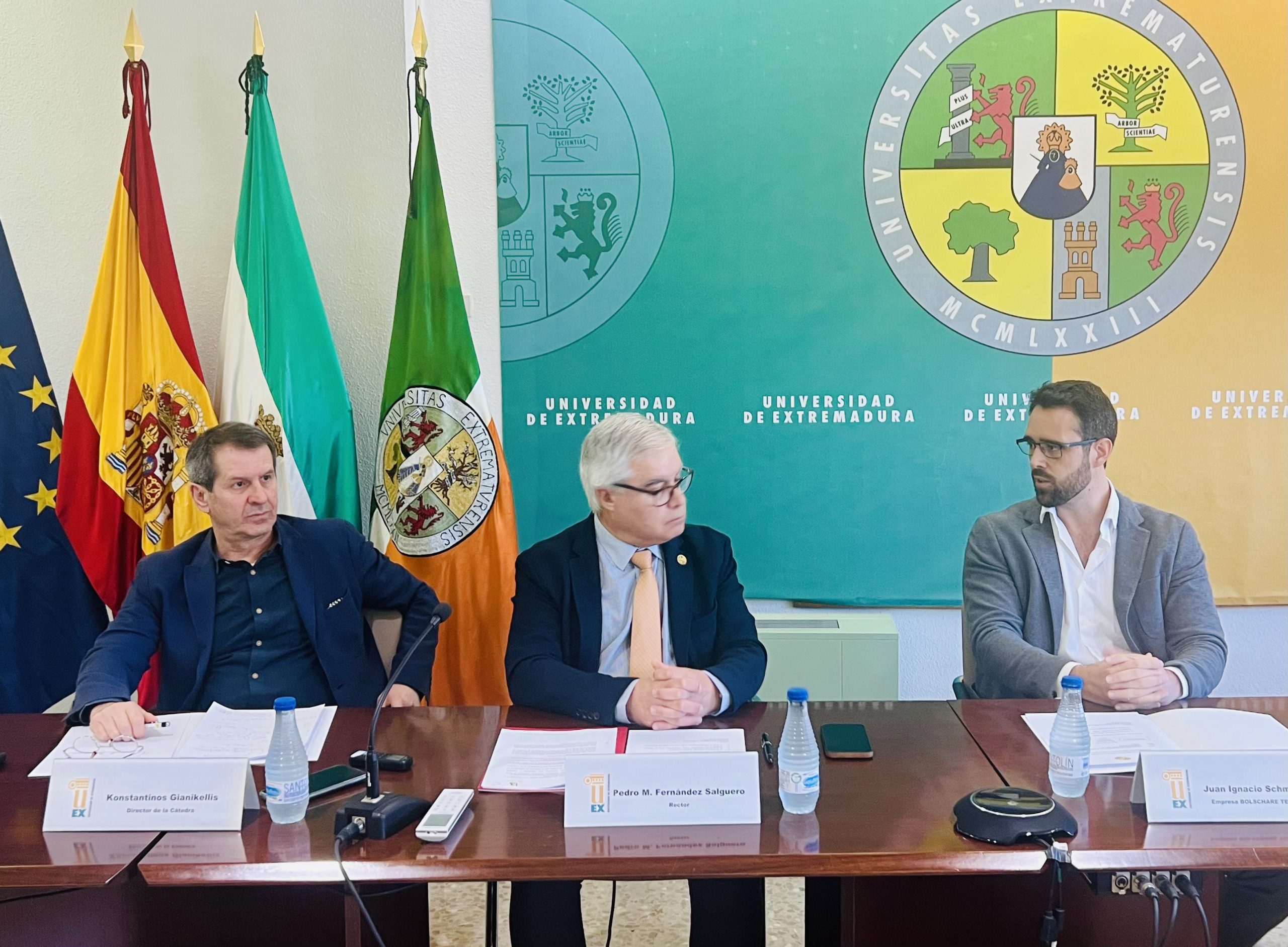It promotes a Chair that will develop projects aimed at adapting agriculture to people with special needs.
Badajoz, may 29th, 2024.- Bolschare Tech, the technology division of the Bolschare Group, and the University of Extremadura (UEx) yesterday presented the Bolschare-Biergon UEx Chair, a pioneering initiative aimed at promoting accessibility solutions in the region’s agriculture sector. Through it, the concept of ‘agrability’ will be promoted, which seeks to adapt work in the Extremadura countryside to people with disabilities.
Among the objectives of the new Chair is the implementation and development of technical means and equipment specially designed for people with disabilities, so that they can carry out agricultural activities with as few limitations as possible. In this sense, the study on the operation of exoskeletal machines or wheelchairs that facilitate the sowing process are emerging as projects within the framework of the programme.
The official presentation ceremony of the Bolschare-Biergon UEx Chair, which took place at the University Campus of Badajoz, was led by the president of the Bolschare Group, Ignacio Schmolling; the rector of the UEx, Pedro M. Fernández Salguero; and the director of the Chair, Konstantinos Gianikellis. Also in attendance were the CEO of Bolschare Agriculture, Pedro Foles; the vice-rector of Research and Transfer of the institution, María de Guía Córdoba; the general secretary of the University of Extremadura, Francisco Álvarez Arroyo; and the director of Fundecyt-PCTEX, José Luis Canito.
During the inauguration, Schmolling highlighted the Bolschare Group’s strong commitment to the values of social integration that seek to transform agriculture into an engine of change and emphasised the importance of promoting projects such as the Chair. “We found in the Bioêrgon Research Group the way to adapt the sector to people with special needs. Our aim is to facilitate social support for the sectors in which we work in order to build inclusive work environments in which people with special needs can develop their profession without limitations,’ he said.
For his part, the director of the Chair explained the objectives and the activities to be carried out. ‘Our focus will be on research and development of technological and ergonomic solutions for the agro-industrial sector, promoting accessibility and quality of life in rural environments,’ said Gianikellis.
Fernandez Salguero, rector of the UEx, highlighted the relevance of the synergy with the agro-industrial sector and the ‘important impact’ that the development of tools aimed at improving the lives of people with disabilities can have in Extremadura. ‘The Bolschare-Bioêrgon Chair is an example of how collaboration between academia and industry can generate tangible benefits for our region,’ he said.
The Chair will draw up an annual Programme of Activities, approved by a Monitoring Committee, which will include a plan for the generation and application of resources. In addition, an annual Activity Report will be submitted to the Vice-Rectorate with competences in R&D&I during the first quarter of the following year.

